ALDI:
Low Prices Don’t Have to Mean Low Standards
PIGS AND HENS SUFFER IN CAGES FOR ALDI
Aldi, a German-based international grocery chain, allows the cruelest factory farming practice in its US supply chain: confining animals in cages. Pregnant pigs are kept in enclosures, called gestation crates, so small they can’t even turn around. Hens live crammed inside battery cages with other birds, unable to spread their wings and forced to live on uncomfortable wire flooring.
Life in a cage is a constant cycle of pain and suffering for these animals.
While Aldi enforces progressive animal welfare standards in Germany, it fails to uphold those values in the U.S. where it continues sourcing from farms that rely on extreme confinement, despite growing opposition from the public and animal welfare experts. An increasing number of companies, including McDonald’s and Wendy’s, as well as Aldi’s competitors like Costco and Albertsons, are taking steps to eliminate cages—why won’t Aldi?
Pigs and hens shouldn’t spend their entire lives suffering in cages for Aldi US.
SEND AN EMAIL TO ALDI US EXECUTIVES AND DEMAND AN END TO CAGES FOR ANIMALS
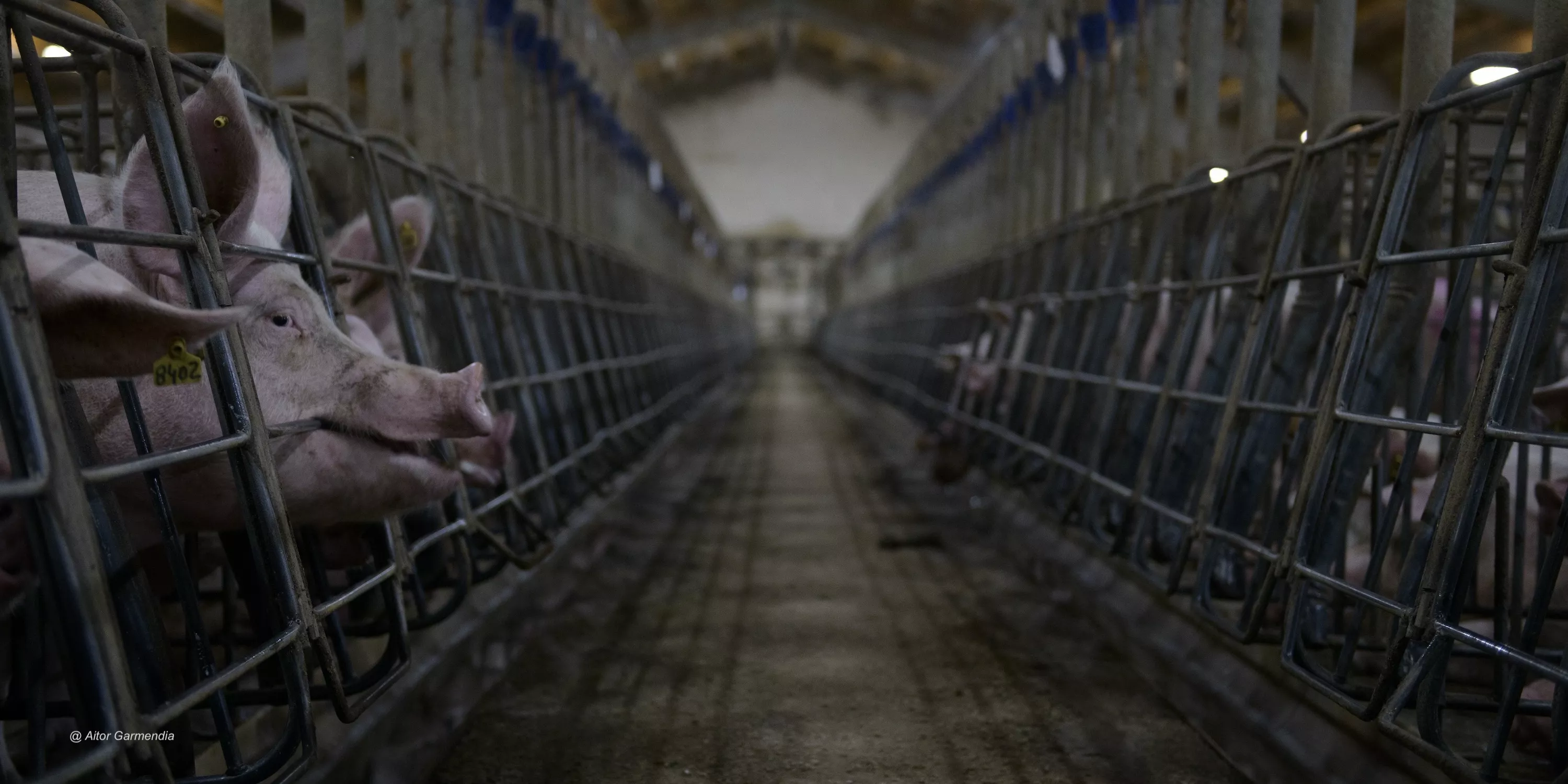
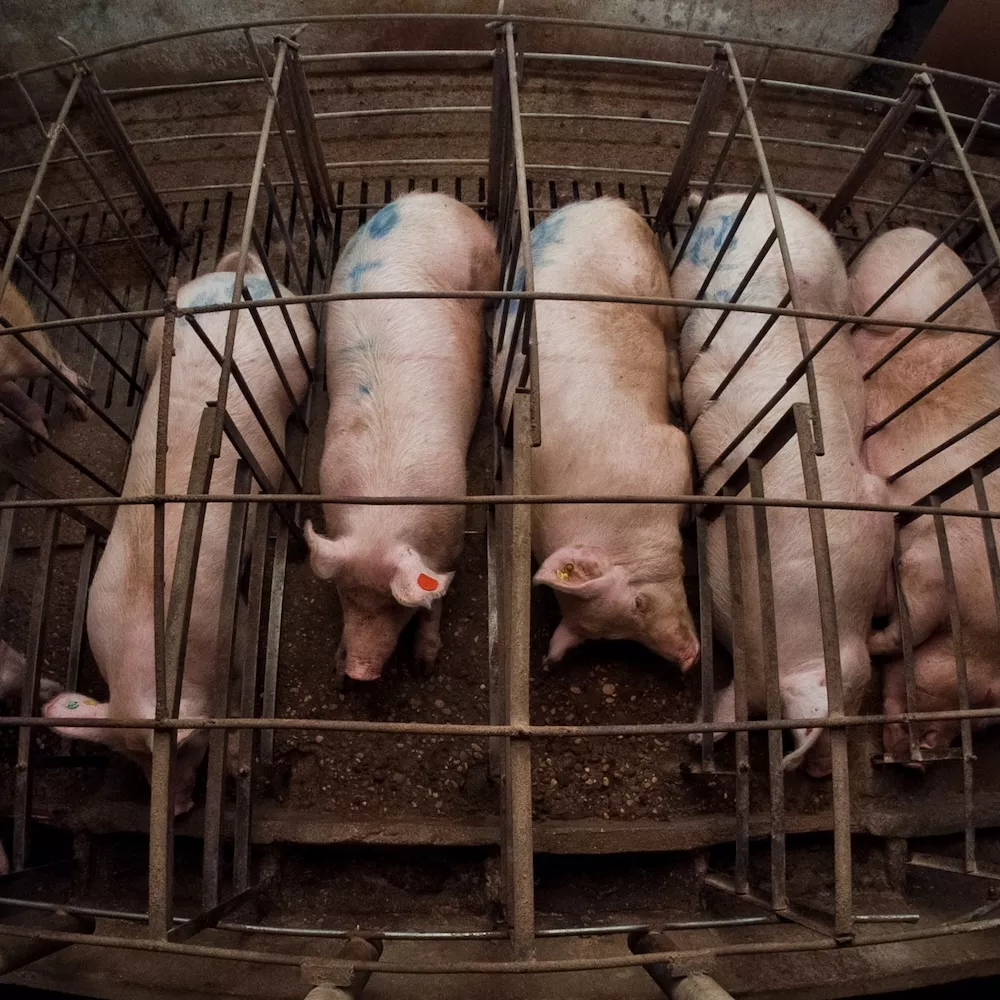
Dane Charbeneau
Aldi’s professed commitment to animal welfare is not just unconvincing but hypocritical, as they continue to condone the cruelest factory farming practices in their US operations. Caging hens and pregnant pigs is an outdated and inhumane practice, and it contradicts Aldi’s own principles.
Campaigns Manager
Animal Equality
Keep Speaking up for animals trapped in cages

Gestation crates for pigs are a real problem… Basically, you’re asking a sow to live in an airline seat.
Temple Grandin
I think it’s something that needs to be phased out.
Associate Professor, Department of Animal Science.
Colorado State University

[T]he close confinement of sows in stalls or tethers is one of the most extreme examples of cruelty to an animal. It continues throughout much of life and is much worse than severely beating an animal.
Donald M. Broom
Professor of Animal Welfare.
University of Cambridge

Confinement of sows during pregnancy, especially in individual stalls or on tethers, can be cold, uncomfortable and injurious, and imposes severe restrictions on natural behaviour.
John Webster
Sr. Research Fellow and Emeritus Professor of Animal Husbandry and creator of The Five Freedoms.
University of Bristol
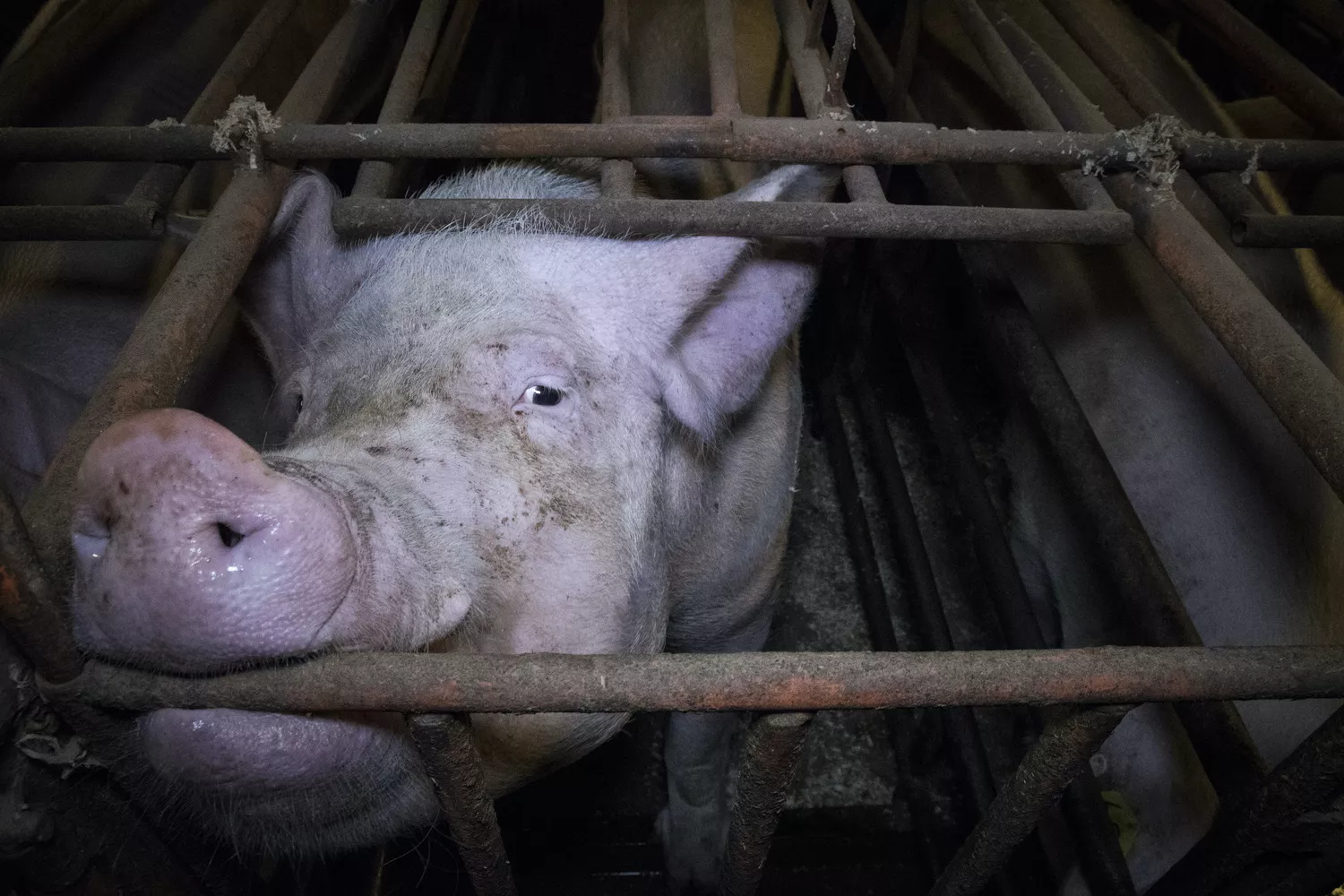
Gestation cages: The cruelest confinement of pigs
These 7-by-2-foot cages take an immense physical and mental toll on the animals.
Pigs cannot walk, turn around, or stand comfortably in these cages. Beneath them are hard floors with slats for the urine and feces to fall through before collecting in giant outdoor waste lagoons. The conditions are so dismal and unsanitary, pigs are pumped full of antibiotics just to stay alive.
Professor Ian Duncan, a scholar of animal welfare at the University of Guelph, has described it as “one of the cruelest forms of confinement devised by humankind.”
Aldi is authorizing extreme animal suffering
Research shows that these cages—gestation crates—cause physical and psychological suffering for pregnant pigs. Unable to move, their bones and muscles weaken. They develop open wounds and sores due to the constant abrasion against the cage bars.
Due to the lack of movement and exercise, many of these individuals develop cardiovascular problems. Their hooves become overgrown and cause them pain when they stand. Digestive problems and painful urinary infections are common, yet little to no veterinary care is administered because these animals are considered expendable.
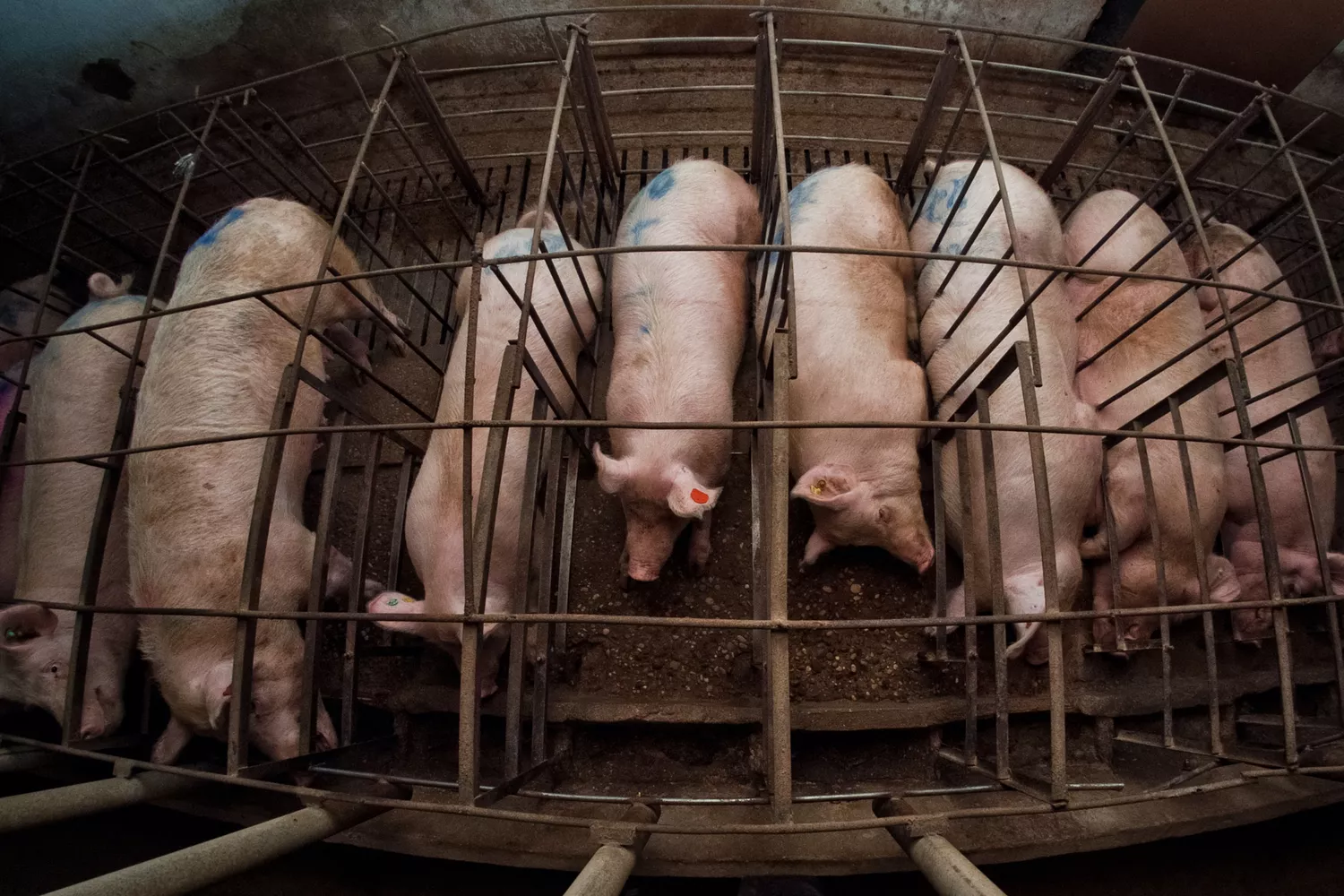
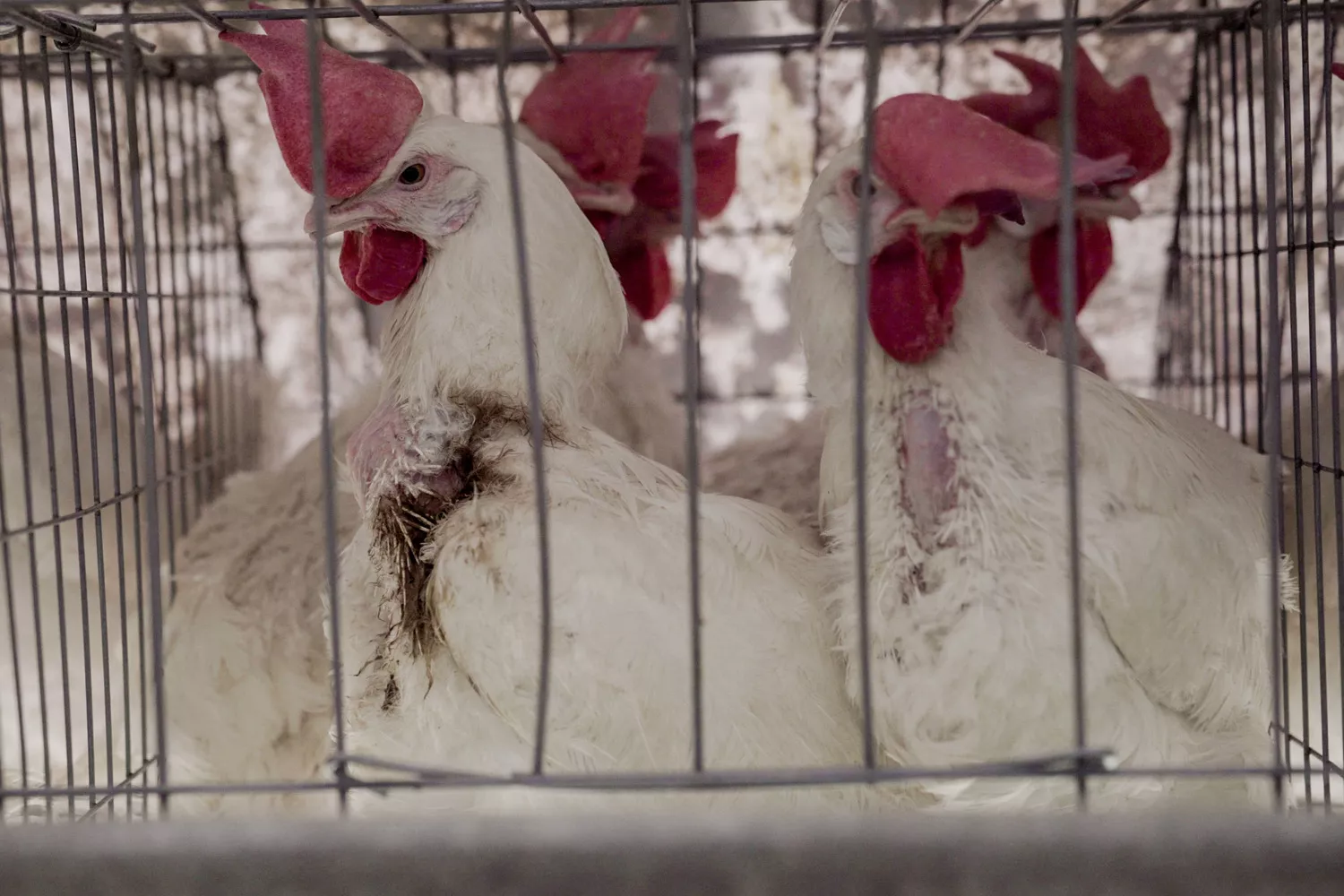
Hens trapped in cages
Hens are social animals who like to forage for food, take dust baths, perch, and care for their chicks.
In Aldi’s US operations, hens used for eggs are crammed into cages with 6 other birds, leaving each hen with less space than a standard letter.
The hens can not spread their wings, perch, roost, nest, dust-bathe, forage, or explore.
They are victims of violence from workers, and their bones often break when their wings get caught in the wire. They are forced to live like this for up to two years.
Because of the poor conditions, many hens die and rot in the cage alongside other birds.
Aldi falls behind competitors
In the United States, ten states have restricted cages for hens, eleven states have banned gestation cages, and thousands of companies worldwide—including Aldi’s close competitors Alberston’s, Kroger, and Costco—are eliminating cages.
Aldi has claimed that animals must be “healthy, comfortable, well nourished, safe, able to express innate behavior, and [who are] not suffering from unpleasant states such as pain, fear, and distress.”
But hens and mother pigs in cages are constantly suffering throughout their lives. Some, exhausted and unable to move, are trampled to death by others confined in the same tiny cage.
Disclaimer: Images represent factory farms that use cages. They do not necessarily supply to Aldi.
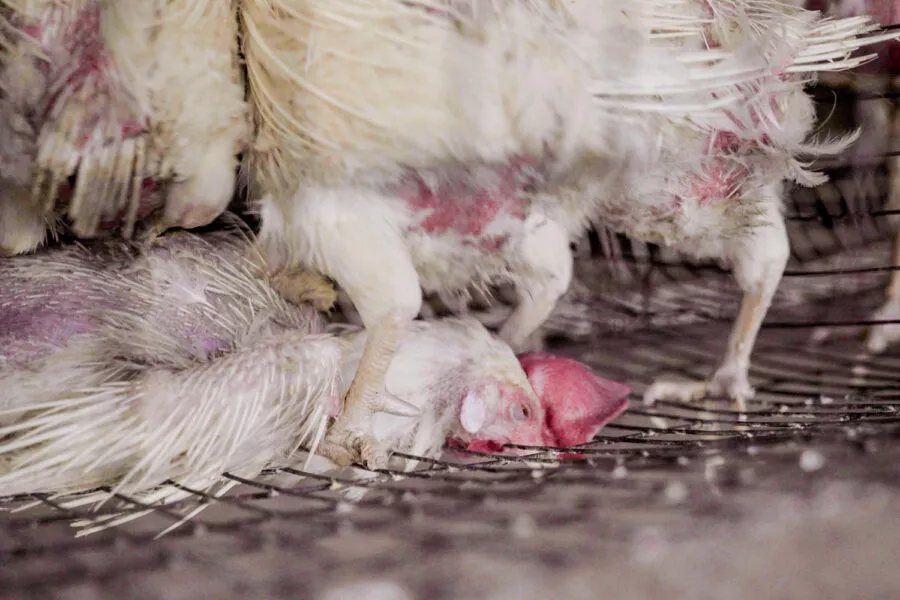
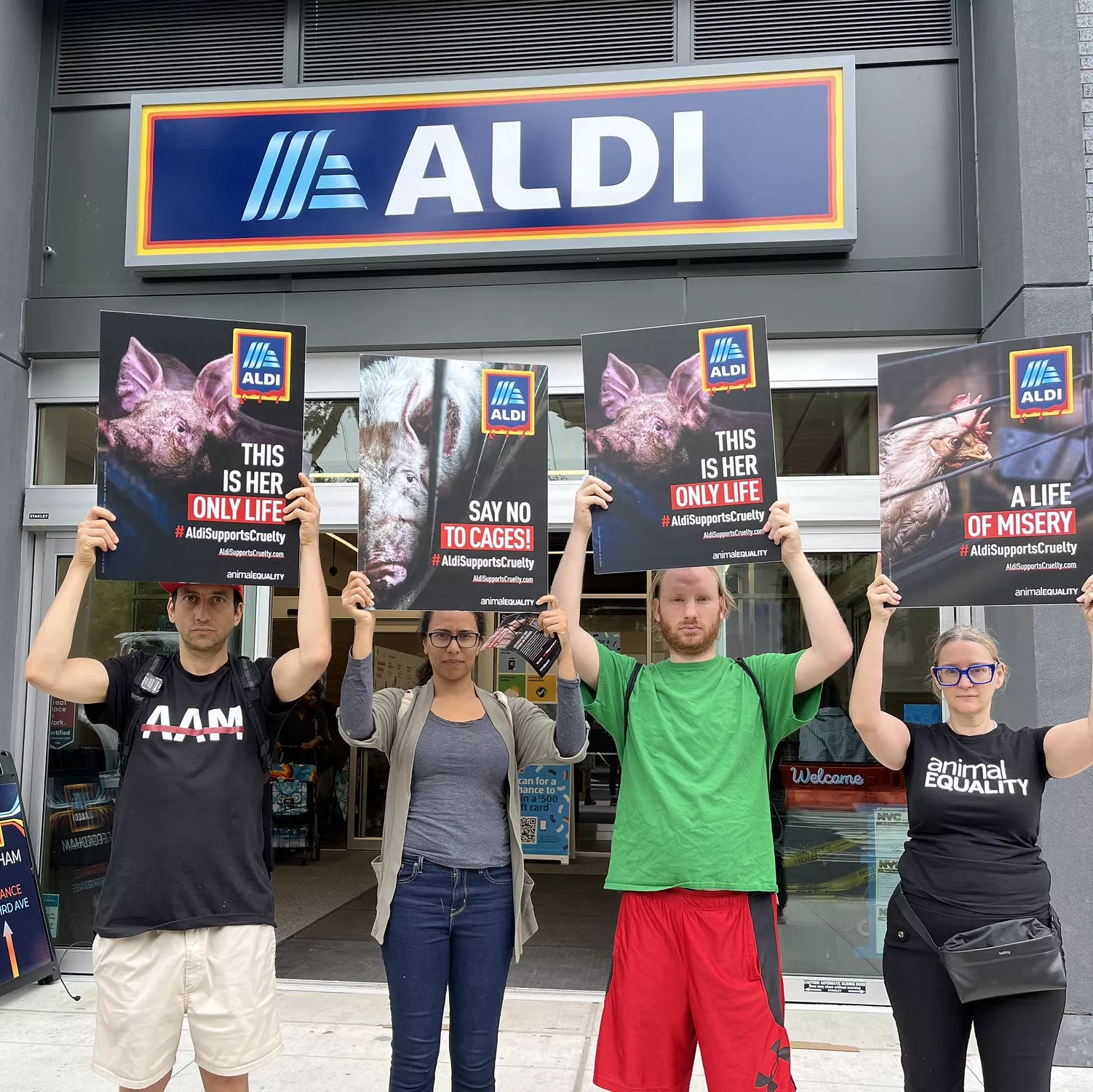
Global protests
Across the U.S. and Germany, advocates are protesting Aldi’s animal cruelty at grand openings, calling out its refusal to end cages for animals. Despite claims of caring about customer concerns, Aldi has ignored demands to address the suffering of pigs and hens in its U.S. supply chain.
Shoppers at these events are appalled to learn about the cages used for pregnant pigs and hens—and agree Aldi must act. Until it makes meaningful changes, Aldi’s promises are nothing more than empty words.


Fighting for animals across the world
Animal Equality is an international organization that works with society, government, and companies to end animal cruelty.
We work in the United States, Mexico, Brazil, the United Kingdom, Germany, Italy, Spain, and India.
